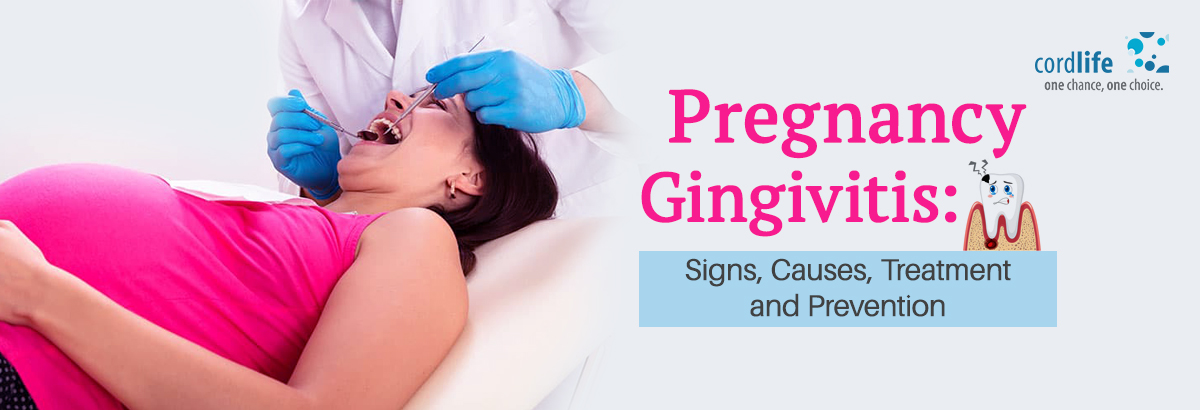Table of Contents
Your pregnancy journey is both exciting and hectic. Nurturing another life within you is not an easy task. You go through a lot. You feel puckish, itchy, tired, get stretch marks on the belly, etc. This aside, you might have to be a little more careful with teeth and gums. The gums may be a bit vulnerable. They may bleed when you brush and floss in the morning or evening. You may experience gingivitis during this time.
What is Pregnancy Gingivitis?
Gingivitis is a condition that involves inflammation of the gums due to the presence of bacteria. As a result of dental plague-induced gingivitis, the gums are irritated, swollen, red, and bleed. Plaque is a sticky film on the teeth after you wake up in the morning contributing to decay.
According to the Centers for Disease Control and Prevention, gingivitis impacts 60% and 75% of pregnancies.
What Causes Pregnancy Gingivitis?
The steep increase in pregnancy hormones is the main driver behind pregnancy gingivitis. Due to the rising pregnancy hormones, bacterial plaque accumulates between the teeth and surrounds the base of the teeth. The yellow-white colour plaque can slowly harden into tartar or calculus near the gums.
Change of Diet
During pregnancy, you crave both savoury and sweet foods. That means the taste preference changes. Choosing unhealthy snacks or comfort food can make your gums uncomfortable. Moreover, your nutrient intake is slightly more than it used to be during your non-pregnancy days. You may have to include more carbs, fiber, protein, etc., in your pregnancy diet. That’s quite natural but at the same time, it can give rise to oral health issues.
Aversion to Toothpaste
It’s not just the change of taste that impacts your oral health, avoiding brushing your teeth twice a day as advised by the dentist can bring about dental problems and result in gingivitis during pregnancy.
Morning Sickness
Nausea and morning sickness during the first stages of pregnancy have a compounding impact on your teeth. The tooth enamel encounters plenty of strong acids due to continuous vomiting. Such acids weaken the enamel of the pearly whites.
Changes in Saliva and Reduced Saliva Production
With the soaring pregnancy hormones, there is less saliva production. Additionally, your saliva becomes more acidic. That means the carbs you eat stick to the surface of your teeth for a very long time and potentially build up plaque.
Can Pregnancy Gingivitis Be Harmful to the Developing Baby Inside You?
Due to conflicting evidence, a few links have been found between pregnancy gingivitis and low birth weight, preterm birth as well as preeclampsia. A few other studies have not shown any relationship between dental gum diseases and serious pregnancy outcomes or complications.
At the same time, as a would-be-mummy, you’d be happy to know that as long as you adopt good dental hygiene, gingivitis during pregnancy is not likely to harm you or the baby inside you.
How Will You Treat Pregnancy Gingivitis?
It’s simple! Getting the gynae’s appointment to check your pregnancy health is your pregnancy routine. Simultaneously, it would help if you visited the dentist to keep your teeth free from gingivitis. The dentist will give you a few ways to take care of your dental health.
- Brush your teeth twice daily for 2 minutes.
- Use a fluoride-induced toothpaste while brushing your teeth. You can alternately brush your teeth by using toothpaste with baking soda. Baking soda can help in removing the harmful acids from the teeth.
- Use a soft-bristled toothbrush so that your gums don’t hurt.
- You may want to skip flossing as you’re already tired of dealing with other pregnancy complications but that’s not a very good habit. Don’t say “no” to flossing. Flossing will remove the food stuck in between your teeth.
- Rinse your teeth with an alcohol-free mouthwash. You can alternatively salt rinse your teeth (Add 1 teaspoon of salt to a cup of warm water). Saltwater is a natural saline wash that soothes your gum.
- Reduce your sugar – intake. Your cravings for those “sweet-nothings” or a few bites of naturally sweet fruits can make your gums prone to disease and infections.
- Take your prenatal vitamin. Vitamin C is healthy for your gums and Calcium for the bones of your teeth.
Don’t miss your dentist’s appointment for your sensitive gums. The best time for you visit to your dentist is at the beginning of your second or third trimester. You may notice the symptoms of pregnancy gingivitis (inflammation and bleeding) at the beginning of the second and third trimester.
Right timing means fewer plaques and fewer plaques mean less inflammation. Pregnancy gingivitis is just like other pregnancy complications you may have to fight with.
